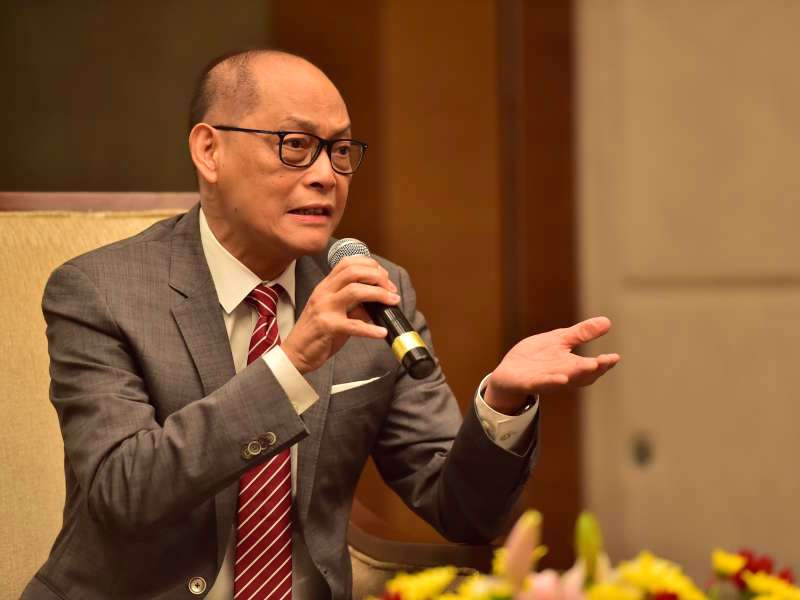
BANGKO Sentral ng Pilipinas (BSP) Governor Benjamin Diokno said on Monday the Philippines will likely be taken out from the Financial Action Task Force’s (FATF) gray list “on or before 2023,” as the country works to address deficiencies in its anti-money laundering safeguards.
In a message to reporters on Monday, Diokno said the government has been “working relentlessly” to address the deficiencies identified in the 2018 Mutual Evaluation even amid the Covid-19 pandemic.
“We remain strongly committed to swiftly resolve the remaining strategic deficiencies [18 from the original 70] within agreed timeframes. In any case, there is no sanction for being a ‘jurisdiction under increased monitoring,’” Diokno said.
Over the weekend, the FATF released its so-called gray list or the list of jurisdictions with strategic deficiencies in their regimes to counter money laundering, terrorist financing and proliferation financing.
The list comprised 22 jurisdictions, with four new entrants for this year including the Philippines, Haiti, Malta and South Sudan.
The Philippines was placed under a 12-month observation period by the FATF in October 2019, following the country’s evaluation of money-laundering safeguards. This observation period has been extended until February 2021 due to the pandemic. However, the Philippines failed to complete the required standards and was eventually gray-listed by the international organization.
“The Philippines has largely addressed the action plans initially indicated in the Mutual Evaluation Report—from 70 down to 18. The National Anti-Money Laundering/Combating the Financing of Terrorism Committee or NACC is also addressing the remaining ICRG action plans,” Diokno said.
“The Philippines will report its progress to the FATF thrice a year —January, May and September; the first report will be this September. The Philippines will be delisted upon successful completion of all action plans—hopefully on or before January 2023,” Diokno added.
Implications on the ground
While being on the gray list is expected to result in an additional layer of scrutiny from international regulators and financial institutions, Rizal Commercial Banking Corporation (RCBC) Michael Ricafort said the impact of the gray listing on the local economy as well as on investments would be “negligible.”
Nevertheless, the country would save more time and also save on additional costs, a more desirable scenario if funds/transactions of the country with the rest of the world move with greater ease, if corrective measures/active plans are adopted, based on global best practices, to help remove the country from the gray list,” he told the BusinessMirror.
BAP chief optimistic
Bankers Association of the Philippines (BAP) President Wick Veloso also expressed optimism that the Philippines will be delisted from FATF’s gray list.
“The Bankers Association of the Philippines will continue to work with the Government on these. We are optimistic that the Philippines will be taken off the gray list in due time,” Veloso told the BusinessMirror.
Lacson: Consistency needed
Reacting to Manila’s being gray-listed, a senator said that consistency in fighting corruption should restore the trust of the FATF and other international financial institutions.
Sen. Panfilo Lacson said that while legislation against money laundering—especially of ill-gotten wealth— and terrorism financing is important, the key is the consistent implementation of existing laws.
“One of the reasons we were included in the FATF’s gray list in 2012 is that the FATF wanted us to address deficiencies in countering terrorist financing, among others. In response, Congress passed Republic Act 10168 or Terrorism Financing Prevention and Suppression Act of 2012. This was further enhanced by RA 11479 or the Anti-Terrorism Act of 2020. This may, however, call for further measures such as amending our existing Bank Secrecy Act, to address a major source of corruption. What we need is to make it difficult, if not impossible, to hide or launder ill-gotten wealth. This would be a big deal in helping stop corruption,” he said.
Lacson noted that since his first term as senator in 2001, he had repeatedly filed a bill seeking to amend the Bank Secrecy Act to remove privacy protection for government officials and employees.
Lacson stressed the importance of consistency in implementing existing laws against money laundering and terrorist financing. “In past years, we have seen a ‘selective’ implementation of laws. There must be consistency to regain trust. Until the people and the international community see that even perceived political allies are sent to jail for wrongdoings, there will always be that perception that certain influential people are exempt from our justice system,” he said. With a report by Butch Fernandez
